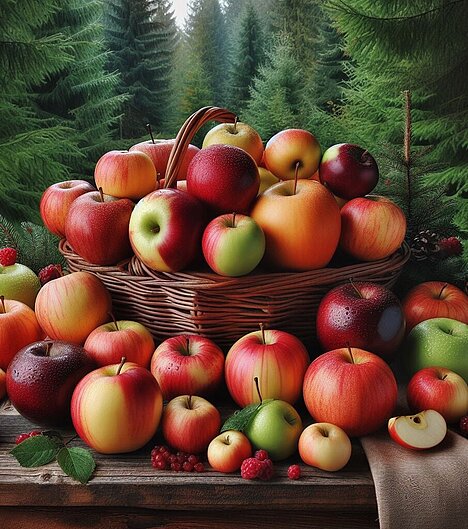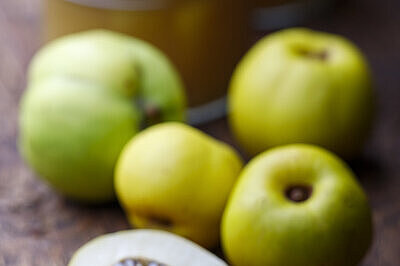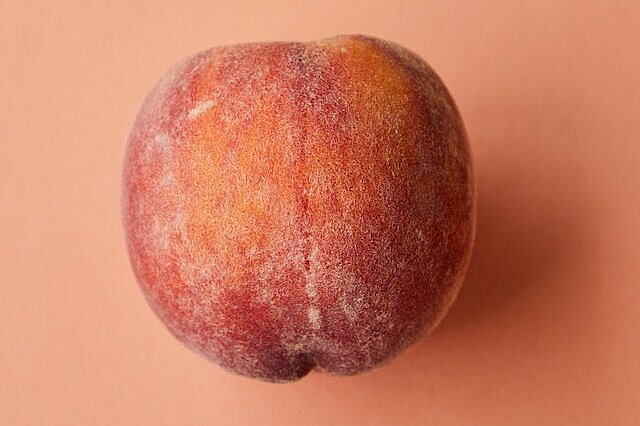Apples

Apples are a popular fruit that many people like to eat. But what about dogs? Can dogs eat apples? And if so, how much and how often? In this article, you'll find out everything you need to know about apples for dogs.
What are apples?
Apples are the fruit of the apple tree, which belongs to the rose family. There are many different varieties of apples, which differ in shape, color, taste and size. Apples consist mainly of water, carbohydrates, fiber, vitamins and minerals. They also contain antioxidants that can protect against free radicals.
What are the benefits of apples for dogs?
Apples can have some health benefits for dogs if they are fed in moderation. For example, apples can:
- Aid digestion, as they contain fiber that can regulate bowel movements.
- Clean teeth , as they have a mechanical effect when chewed, which can reduce plaque and tartar.
- Strengthen the immune system as they contain vitamin C, which plays an important role in fighting off infections.
- Control weight as they are low in calories and can give a feeling of satiety.
What are the disadvantages of apples for dogs?
Apples are not suitable for all dogs and can also have some disadvantages if fed too much or incorrectly. For example, apples can
- Trigger allergies if the dog is sensitive to certain ingredients.
- Cause gastrointestinal problems if the dog eats too many apples at once or with other foods.
- pose a choking hazard if the dog swallows large pieces or the apple core.
- Risk of poisoning if the dog eats the skin or core, which may contain traces of pesticides or cyanide.
How do you feed apples to dogs?
If you want to feed apples to your dog, there are a few things you should keep in mind to avoid potential risks. Here are some tips:
- Choosefresh and ripe apples that have no signs of mold or rot.
- Wash the apples thoroughly to remove any pesticide residue or dirt.
- Cutthe apples into small pieces and remove the core and seeds , which can be dangerous for the dog.
- Only feed your dog a small amount of apples as a snack or reward and not as a main meal.
- Observe your dog after feeding apples for possible signs of intolerance or allergy, such as vomiting, diarrhea or itching.
Apples can be a tasty and healthy addition to a dog's diet if they are fed correctly and in moderation. They can have a positive effect on your dog's digestion, teeth, immune system and weight. However, you should make sure that your dog does not eat any parts of the apple that could be harmful to him, such as the skin, core or seeds.
Properties 4
Are you looking for other ingredients with a specific property?
Just click on them to find more.
If you notice any signs of hypersensitivity or poisoning in your dog, you should see your vet immediately. We are not a substitute for a vet, but we try to be as accurate as possible. Every dog reacts differently and we recommend you get a second opinion or consult your vet if in doubt.
Stay healthy and take good care of your four-legged friend!😊
Similar to Apples
Pears are fruit that grows from trees. There are many different varieties of pears, which differ in shape, color, taste and ripening time. Most pears are green, yellow or red and have a soft, juicy...
Quinces contain many healthy nutrients that are also good for dogs. These include potassium, zinc, iron, copper, manganese and fluorine. These minerals and trace elements are important for cell...
What are peaches? Peaches are stone fruits that originally come from China. They have a soft, furry skin and juicy flesh, which is usually yellow or white. There is a hard stone in the center which...
Nectarines are a type of fruit that is closely related to the peach . They have a smooth skin and juicy flesh with a sweet taste. Inside the fruit is a hard stone, also known as a pit. Nectarines...



